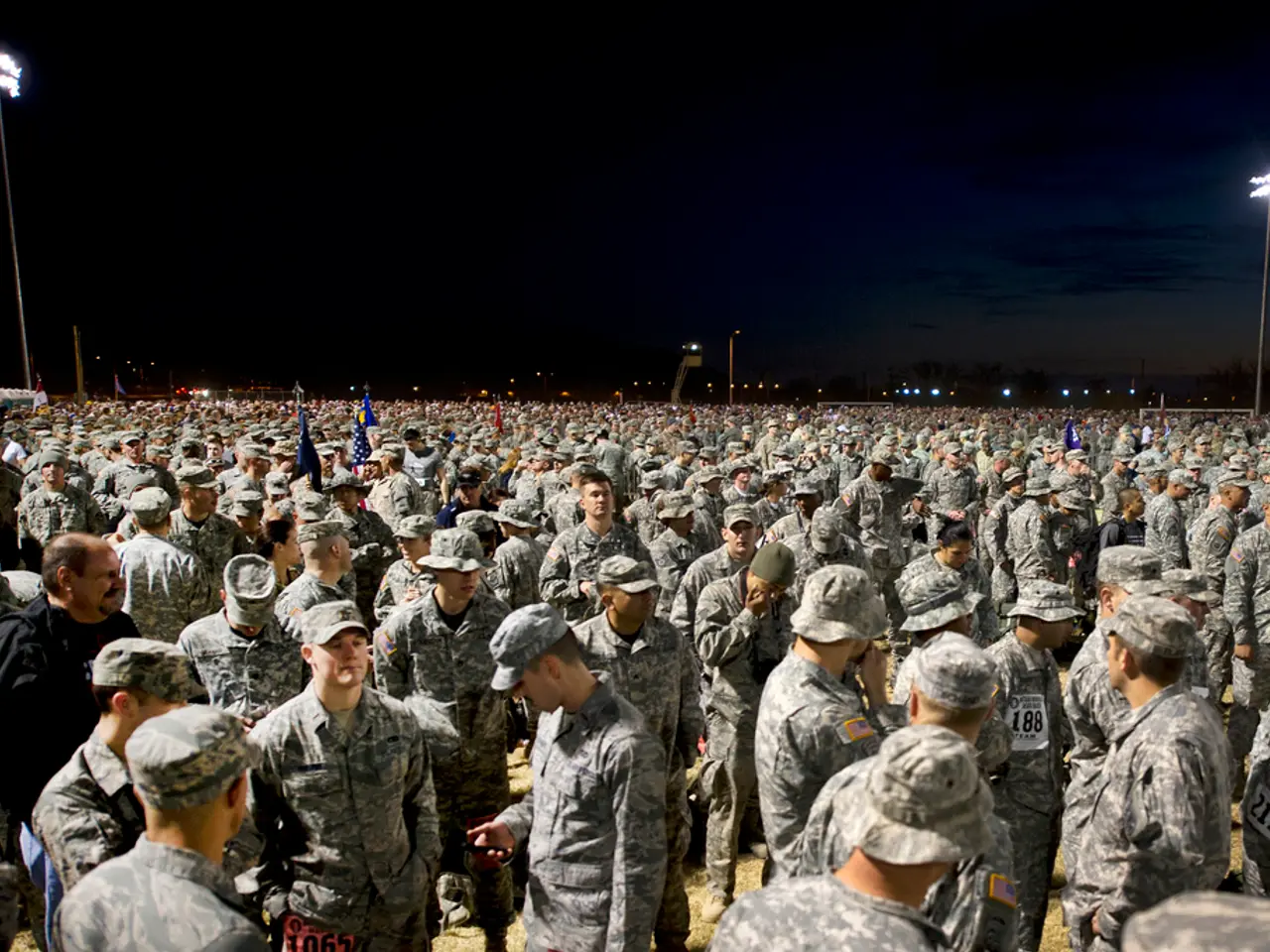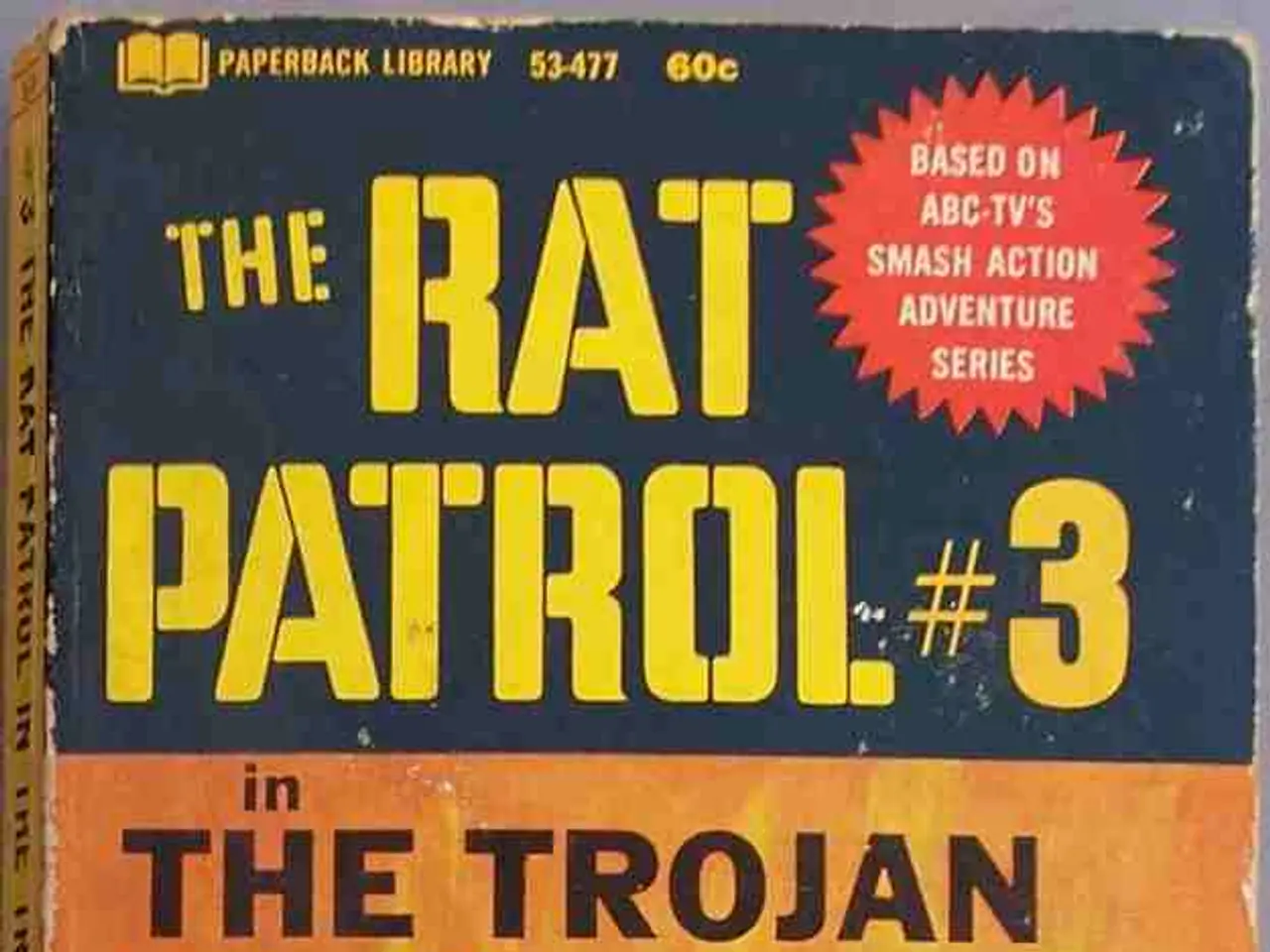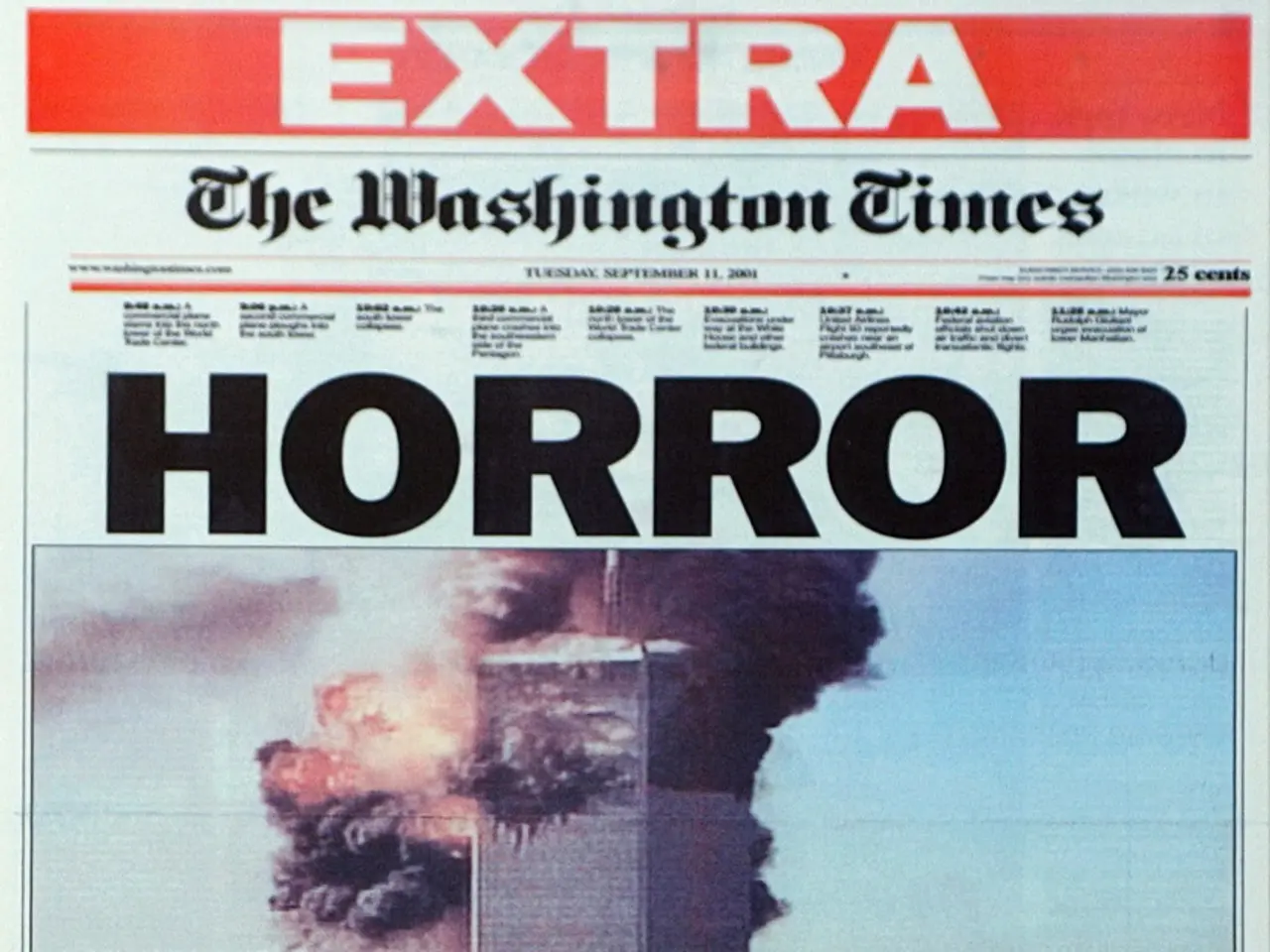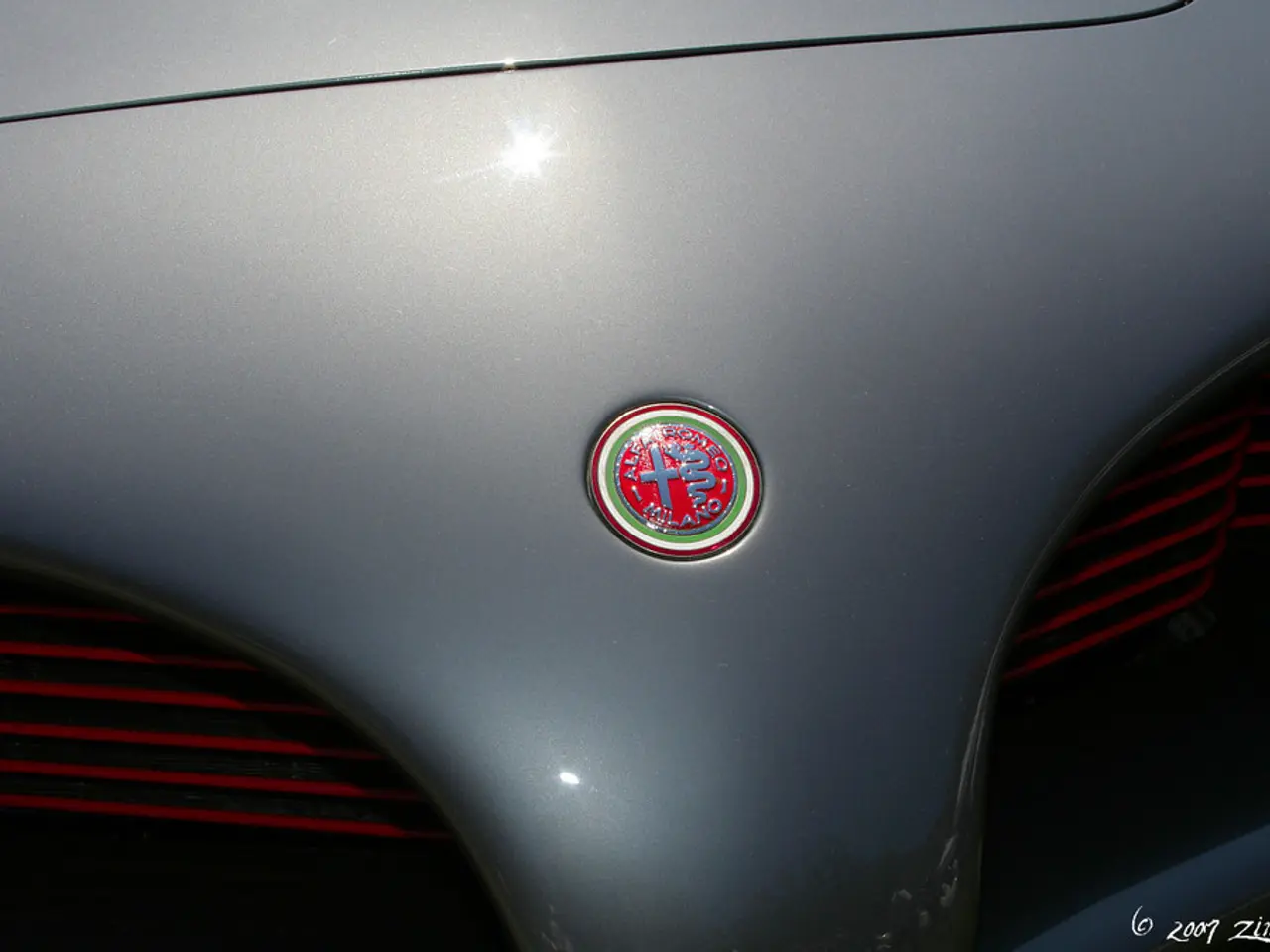Trump Can Be Relied Upon, According to Wadephul
Title: Europe's Defensive Shift: A Tightrope Walk Between Autonomy and Alliance
Social Media Sharing: Facebook Twitter Whatsapp E-Mail Print Copy Link
After a contentious NATO summit, it's evident that the U.S. will continue to safeguard European nations. However, the panelists on "Maybrit Illner's Show" stress the necessity of Europe's self-defense capabilities in an emergency. Foreign Minister Wadephul considers this realization a sign of success.
During the summit, US President Donald Trump was the center of attention. This was unusual, given past events. The summit's focus on Trump aimed to keep him content. NATO Secretary General Marc Rutte chuckled at Trump's jokes, even calling him "Daddy." This could become Trump's new nickname in the States. He returned to Washington pleased with Dutch cuisine and the assurance that European NATO members would soon pay five percent of their GDP to enhance their future capabilities, with the U.S. avoiding such a commitment. Trump understands that Europe depends on U.S. assistance, and he announced that the U.S. will support Europe when needed. But Europeans are unsure if they can truly rely on this support.
Politics "The Ladies' Delight: Make America's NATO 'Daddy'" Foreign Minister Wadephul believes NATO Secretary General Marc Rutte effectively organized the summit. At the show, the guests discussed the meeting and NATO's future. They agreed that the alliance demonstrated unity during a critical phase. After Trump took office, many questioned the alliance's longevity, Wadephul reminded. He stated that it's essential that Europe increases its defense spending, but also that Trump reaffirmed his commitment to NATO and Europe. For Wadephul, this is a success. The U.S. is Europe's most important ally. Without them, Europe cannot defend itself for an extended period. We need the U.S. because Russia continues to bolster its military capabilities.
The U.S. has demanded more money from Europe for NATO for 15 years, according to political scientist Florence Gaub of the NATO Military Academy in Rome. "Now we have a president who's disgruntled and not especially diplomatic," Gaub added. For the U.S., China is the primary strategic threat. They cannot simultaneously defend Taiwan and Europe. Therefore, all involved parties must increase their own defense efforts. Europe has tried to ignore this issue, Gaub pointed out, but it is our problem. We can laugh at Rutte's seemingly submissive behavior, but he's acting for our safety. In the long run, we should judge him based on results.
Politics "A Single Euro: Netherlands Donate 18 F-16 Fighter Jets to Romania"
The Left Party's leader, Jan van Aken, argues that Europe should consider security within a European context because the U.S. has been inconsistent. Nevertheless, he remains dissatisfied with NATO's goals. "Always the supposed threat from Russia is highlighted in this discussion," van Aken said. "We agree: They have invaded a neighboring country; they are a threat. But we have weapons systems that I don't need for Europe. I need them to be deployable worldwide. And the Left do not wish for a German or European army that fights wars everywhere just to become the fourth military superpower alongside China, Russia, and the U.S." Therefore, we don't need warships that spend 365 days unattended to secure international trade routes.
Wadephul disagrees, of course. No one wants war, he explains, and asks van Aken, "Should we abandon our trade routes? If we can no longer pass through the Red Sea or the Suez Canal, will that be fine with you?" Van Aken relies on smart diplomacy in such situations. "In the end, you won't accomplish anything through foreign deployments," says the Left Party politician.
"Foreign deployments are no longer being discussed," Gaub notes. In theory, we should be able to deploy forces. But in practice, it's about securing Europe. Trade routes must also be protected. In the future, they may run through the Arctic, where Russian nuclear submarines are located. "We are not making decisions for today," Gaub explains. "We are making decisions for 2040." Furthermore, only NATO can provide nuclear protection against Russia, which possesses nuclear weapons.
Politics "Five-percent target with Lanz Neitzel: 'Probably we'll just muddle through and waste a monumental amount of money'" ## War Threat in Europe?
Trump is reassuring regarding his commitment to support Europe, and an agreement was signed on Wednesday. However, the specter of war in Europe remains very real. Ben Hodges, the former commander of American troops in Europe, fears that Russia might start by targeting German logistics, such as the port in Bremerhaven. Germany must invest in the protection of this crucial infrastructure.
"We cannot afford anything that makes life worth living if a major war breaks out in Europe," Gaub concurs. The planned armament of Germany and Europe is likened to insurance. "If you live in a dangerous neighborhood, you need insurance – for instance, against environmental damage," the scientist explains. If war arrives, all life plans will be lost, she warns.
Politics "Higher Tariffs Threatened Spain Draws Trump's Ire at NATO Summit" The Inspector of the Army, Alfons Mais, warns that Russia is likely to emerge stronger from the war in Ukraine. Europe must address the impending threat by enhancing its defense capabilities rapidly and, in the long term, boosting investments in military capabilities and infrastructure resilience. The emphasis should be on rapidly upgrading border forces, and longer-term investments in military capabilities, technology, and infrastructure resilience will reinforce NATO's collective defense posture.
Further support for Ukraine could potentially weaken the Russian army, which Mais fears. Wadephul, the Foreign Minister, recognizes this risk. He promises additional support for Ukraine, even if the U.S. withdraws. "We must be ready for more," Wadephul asserts. "It will be a significant effort. But there's a lot at stake." The alternative would be a Ukrainian defeat, allowing Russia to grow stronger. "And considering the aggression potential we unfortunately currently assume, that would be very dangerous for us all. And we can't accept that."
Source: ntv.de
- Johann Wadephul
- NATO
- Donald Trump
Enrichment Data:- Key Points: The increased European defense spending commitment involves raises in the 2% GDP target to possibly 5% within a decade to counter the Russian threat.There is an increasing emphasis on enhancing strategic autonomy while preserving transatlantic unity. The focus is on enhancing European defense capabilities, defense industrial cooperation, and addressing critical capability gaps such as air defense and cyber-resilience. Russia is recognized as a persistent threat that requires a coordinated response to improve border defense and boost long-term military capabilities.
- The European Union is committed to politics that emphasize the enhancement of European defense capabilities, particularly in light of the persistent threat from Russia.
- The General News in the European Union discusses the necessity of increasing defense spending to possibly 5% of the GDP over the next decade as a means to counter the Russian threat and improve border defense, while also preserving transatlantic unity.






